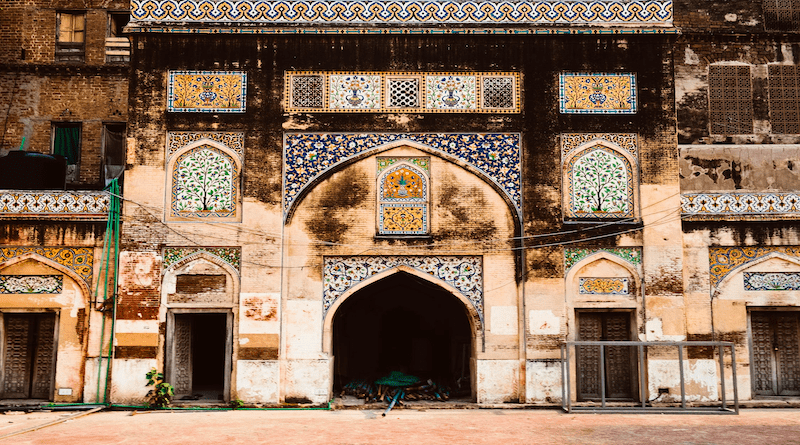Pakistan’s Energy Crisis – OpEd
be powered or propelled. Energy is an essential component of practically all production and consumption processes, making it crucial to the growth and economic development of a developing nation. The state of Pakistan is moving closer to being energy insecure due to rise in worldwide costs, the devaluation of Pakistani rupee, and the local political and economic turmoil.
Pakistan is not an exception to the global energy shortage that is currently causing shock waves from Europe to Asia. Unfortunately, Pakistan is nearly entirely dependent on imported energy resources due to the country’s inability to produce enough energy to meet the rising demand within the nation. Pakistan’s severe energy problem is putting its fragile economy and volatile national security environment in a difficult situation. Some estimates claim that, over the past few years, the nation has lost up to 4% or more of its GDP due to energy shortages. Also, they forced the closure of hundreds of factories, which halted production and made unemployment worse.
The 1990s are where Pakistan’s existing energy issue began. When the government built the massive Mangla and Tarbela dams in the 1970s, a serious energy crisis was avoided. Initially, this resulted in a brief period of hydro-driven energy generation that successfully met demand. Yet following a period of rapid economic expansion in the 1980s, energy consumption grew, infrastructure and supply were again unable to keep up. Despite more or less efforts to increase production, the government was unable to meet demand. The situation has only gotten worse as Pakistan’s population has been growing quickly while urbanization has led to the growth of new factories and other corporate energy users. In light of this, it is crucial to emphasize that Pakistan’s current energy crisis is a result of problems that go far beyond those related to power supply.
Without a doubt, Pakistan is endowed with an abundance of domestic energy resources, particularly rich in coal, natural gas and hydroelectricity. Unfortunately, these resources are neither exacted for use nor equally distributed. However, in the case of the two most important energy sources, oil and gas, consumption levels are so high that domestic resources are rapidly depleting. Oil and Gas Development Company Limited (OGDCL), Pakistan’s national oil and gas firm, predicts that the country will run out of domestic natural gas sources by 2030 and its domestic oil reserves by 2025.climate change is also endangering the hydroelectricity supply, which is a grave frightening truth.
At the same time, governance deficiencies (variety of factors) pose a significant challenge to the power sector. Pakistan’s energy policies are overseen by a number of government ministries, but coordination is always lacking, clear lines of authority are absent, and interagency turf wars are legion. The sector also suffers from gross inefficiencies, which include both transmission and distribution losses. As a result, Pakistanis are frequently seen clinging to power lines.
Yet, one of the most serious issues affecting the energy sector is lack of capital. With Pakistan’s economy struggling, liquidity is at all-time low. As a result of this, in reality, no one can afford to pay the energy costs, including private energy providers, national transmission corporations, distribution agencies and even the government. Notably, according to figures provided by Pakistan’s power ministry, “powerful defaulters” owe at least $1billion in unpaid energy bills. As a result, the energy sector lacks the funding it needs to cover the production, transmission and distribution expenses as well as operational and administrative expenses. This “circular debt”, which is the difference between earnings and the expenses, is directly affecting the country’s economy and worsening the situation.
The world is evolving rapidly. In order to save time and speed up the production process, every process is automated. It will be impossible to keep up with rest of the world without energy security. If Pakistan is to become a competent modern and developed nation, it must quickly adopt renewable energy sources to meet its energy requirements, choose affordable and sustainable energy sources for socio-economic growth and development and most importantly, opt unity and coordination between its political leaders and across its various sectors and departments in order to overcome the crisis as soon as possible.It could appear, given the nature of the global economy, that Pakistan’s energy crisis wont experience a drop any time soon. Nonetheless, it is the responsibility of Pakistan’s governmental authorities and stakeholders to lessen the energy problems and find long-term solutions to it. It’s crucial to remember that being optimistic will help tackle and manage any kind of a situation. We should all do actions that are within our domain and power to strengthen our nation on all fronts.
Tehreem Fatima is a final semester BS International Relations student at the University Of Balochistan, Quetta. She aspires to be an independent researcher to expand her knowledge and writing abilities. She also serves as an executive member of Balochistan arm of Human Rights Council of Pakistan. Her area of research interests include; Political economy, Cyber warfare, Nuclearization, and Defense and strategic studies.

